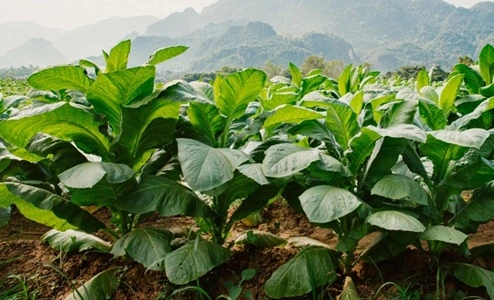No, it is not illegal to grow tobacco in the United States for personal use. However, cultivating tobacco is subject to various federal, state, and local regulations, especially when intended for commercial purposes. Understanding these legal frameworks is essential for compliance and to avoid potential legal issues.
Federal Regulations
At the federal level, the cultivation of tobacco for personal use is generally permitted without the need for licenses or permits. The U.S. Department of the Treasury’s Alcohol and Tobacco Tax and Trade Bureau (TTB) does not require individuals to obtain a permit for growing tobacco for personal consumption. However, once tobacco is manufactured into products for sale, federal excise taxes apply, and appropriate permits are required. The U.S. Department of Agriculture (USDA) may also have regulations concerning the growing and sale of tobacco.
State Regulations
State laws regarding tobacco cultivation can vary significantly:
- Permits and Licensing: Some states may require permits or licenses for growing tobacco, even for personal use. For example, in Kentucky, Pennsylvania, Tennessee, and Virginia, individuals who wish to cultivate tobacco for personal use are required to obtain a Tobacco Growers License from the state government.
- Quantity Restrictions: Certain states may impose limits on the amount of tobacco an individual can cultivate without a commercial license.
- Sales and Distribution: Selling homegrown tobacco is generally regulated and often requires compliance with state taxation and licensing laws.
Local Ordinances
Local governments may have additional regulations affecting tobacco cultivation:
- Zoning Laws: Some municipalities have zoning laws that restrict agricultural activities, including tobacco cultivation, in certain areas.
- Public Health Regulations: Local health departments may enforce rules related to the processing and handling of tobacco to ensure public safety.
Health and Safety Considerations
Growing tobacco involves handling nicotine, a potent substance that can be toxic if mishandled. Proper precautions, such as wearing protective clothing and ensuring adequate ventilation, are essential to minimize health risks.
Environmental Impact
Tobacco cultivation can have significant environmental effects, including soil depletion and pesticide use. Implementing sustainable farming practices can help mitigate these impacts.
Best Practices for Growing Tobacco
- Research Regulations: Before planting, consult federal, state, and local regulations to ensure compliance.
- Obtain Necessary Permits: If required, secure all necessary permits or licenses for cultivation.
- Practice Safety: Use appropriate protective gear and follow safety guidelines when handling tobacco plants.
- Consider Environmental Factors: Employ sustainable farming methods to reduce environmental harm.
Conclusion
While growing tobacco for personal use is generally legal in the U.S., it is subject to a complex web of regulations. Prospective growers must diligently research and adhere to federal, state, and local laws to ensure compliance and avoid legal repercussions.
Frequently Asked Questions
Q. Is it legal to grow tobacco for personal use in the U.S.?
Ans: Yes, federal law permits the cultivation of tobacco for personal use without a license. However, state and local regulations may impose additional requirements.
Q. Do I need a permit to grow tobacco commercially?
Ans: Yes, commercial cultivation and sale of tobacco require appropriate federal and state permits and are subject to taxation.
Q. Can I sell tobacco that I grow at home?
Ans: Selling homegrown tobacco typically requires compliance with federal and state regulations, including obtaining necessary licenses and paying applicable taxes.
Q. Are there restrictions on the amount of tobacco I can grow?
Ans: Some states may impose quantity restrictions for personal cultivation. It’s essential to check local laws for specific limitations.
Q. What safety precautions should I take when growing tobacco?
Ans: Wear protective clothing, ensure proper ventilation, and follow guidelines for handling nicotine to minimize health risks.


